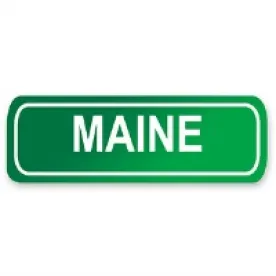On Tuesday, March 31, 2020, Governor Janet Mills announced a new Executive Order requiring all Maine residents to stay home, except for an essential activity or an essential job. This order takes effect on Thursday, April 2, 2020 at 12:01 AM and remains in effect until at least April 30, 2020.
Workers at essential businesses may travel between their home and those businesses, to and from child care, and to and from customers to deliver goods or perform services. All non-essential businesses and operations must continue to abide by Executive Order 19 and this Order, and those workers may only travel between their home and non-essential business for minimal operations and to and from customers to deliver goods. In addition, Executive Order 14, which required all restaurants and bars to close their dine-in facilities, has been extended until at least April 30, 2020. Click here for a list of essential and non-essential businesses.
ESSENTIAL ACTIVITIES
Essential activities include, but are not limited to, obtaining necessary supplies or services (groceries, equipment needed to work from home, sanitation products, and laundry); obtaining medical care, medication, or medical supplies; caring for a family member; traveling to and from an educational institution for meals or instructional materials; and outdoor exercise activities.
VEHICLE TRAVEL
The order prohibits the use of public transportation, except for an essential job or an essential activity. In addition, the order mandates that persons driving private vehicles carry passengers only from their immediate household.
SCHOOL CLOSURES
All public and private K-12 schools statewide must remain closed for classroom-based instruction until at least May 1, 2020.
ESSENTIAL RETAIL BUSINESSES AND OPERATIONS
Remote Order and Curbside Pickup
Essential stores must transact as much business as possible by curbside order pickup or by other methods that limit in-person contact, and must broadly advertise these methods.
In-Store Gathering Limits for Essential Stores, by Size of Retail Space:
-
5 customers for stores with less than 7,500 square feet of retail space
-
15 customers for stores with retail space of more than 7,500 square feet and less than 25,000
-
50 customers for stores with retail space of more than 25,000 square feet and less than 50,000 square feet
-
75 customers for stores with retail space of more than 50,000 square feet and less than 75,000 square feet
-
100 customers for stores with more than 75,000 square feet of retail space
Additional In-Store Requirements
The Order requires essential stores to:
-
Enforce social distancing requirements: post signs at all public entrances instructing customers to maintain a distance of six feet from other customers, and mark customer lines with signs and floor lines to impose social distancing requirements.
-
Disinfect cart handles and basket handles prior to each reuse by a customer.
-
Minimize customer handling of unpurchased items.
-
Offer separate hours for persons over the age of 60 and customers with medical conditions.
Additional Requirements for Stores with More Than 75,000 Square Feet
Essential stores with retail space of more than 75,000 square feet must install protective shields between the customer and the worker.
Compliance
Penalties may be assessed if an essential store violates this order, including further on-site restrictions or closure until the violations are addressed.
Preemption
This order does not preempt any measures taken by municipalities that are more restrictive. For example, the city of Portland’s ban on short-term rentals may remain in effect. However, municipal measures may not be less restrictive.
Enforcement
This order will be enforced by law enforcement and violations are a class E crime (up to six months in jail and a $1,000 fine).



 />i
/>i
